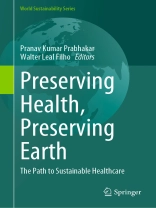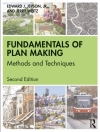This book is a groundbreaking book that delves into the critical intersection of health care and sustainability. As the healthcare industry faces increasing scrutiny regarding its environmental impact, this comprehensive guide offers a roadmap for transforming healthcare systems into sustainable entities that prioritize the health of both individuals and the planet.
Drawing on a multidisciplinary approach, the book explores the environmental footprint of healthcare practices and infrastructure, shedding light on the resource consumption, waste generation, and pollution associated with the industry. It establishes the crucial link between environmental health and human health, emphasizing how a polluted environment can impact public health outcomes and the need to preserve natural resources for improved healthcare outcomes.
The book goes beyond merely highlighting the challenges; it presents practical strategies and actionable solutions for healthcare professionals, policymakers, and stakeholders to navigate the path toward sustainability. It examines case studies and best practices from healthcare institutions that have successfully implemented sustainable initiatives, showcasing their approaches and lessons learned.
In addition to addressing the technical aspects, the book tackles the ethical and social considerations of sustainable health care. It emphasizes the importance of equity, social justice, and community engagement in promoting sustainability within healthcare delivery and decision-making processes.
This book is an indispensable resource for healthcare professionals, policymakers, researchers, and students seeking to integrate sustainability practices into their work. It serves as a guide for creating a greener and healthier future, highlighting the potential of sustainable health care to improve both environmental well-being and public health outcomes.
With its comprehensive coverage, insightful analysis, and practical recommendations, this book contributes to the global conversation on sustainable health care and provides a solid foundation for transforming the industry. It inspires readers to become catalysts for change, fostering a new era of health care that not only preserves health but also preserves the Earth for future generations.
Mục lục
Chapter 1. Confronting the Health Impact of Climate Change: A Comprehensive Exploration (Aniruddha Sen).- Chapter 2. Sustainable Practices in The Pharmaceutical Industry: Development and Adoption (Koyel Kar).- Chapter 3. Climate Change and Health (Prabhakar Singh).- Chapter 4. Healing with Care: A Roadmap to Sustainable Healthcare (Keshav Singh).- Chapter 5. Community Engagement and Education for Eco-conscious Health (Abhinay Thakur).- Chapter 6. Human Health in the Face of Extreme Weather: An Analysis of Impacts and Implications (Geeta Arora).- Chapter 7. Exploring the Emergence of Sustainable Practices in Healthcare Research and Application as a Path to a Healthier Future (Harshita Jain).- Chapter 8. Sustaining Sustainable: Investigating the Full Spectrum of Food Waste, From Production Through Consumption to Disposal (Leena N Fukey).- Chapter 9. Navigating Health Challenges: Approaches for Sustainable Development in a Changing Climate (Amir Ahmad Dar).- Chapter 10. Mental Health and Well-being in Sustainable Practices (Vivek Barik).- Chapter 11. Unani Medicine’s Integration in Healthcare: Harmonizing Sustainable Food Wisdom for Holistic Well-being (Sapra M.S.F).- Chapter 12. Advances in Cosmetic Products Towards A New Future (Parnika Neytal).- Chapter 13. The role of analytics in improving health outcomes: Are Accredited social health activists (ASHA) at the forefront in social health protection? (Vijayetta Sharma).- Chapter 14. Mindful Approaches to Sustainable Healthcare: Nurturing Mental Health and Well-Being (Rahul Saxena).- Chapter 15. From Ideation to Innovation: Integrating Pharmaceutical Innovation and Sustainable Development (Heba M. Mansour).- Chapter 16. Artificial Intelligence for advanced Sustainable development goals: A 360-degree approach (Rahul Joshi).
Giới thiệu về tác giả
Dr. Pranav Kumar Prabhakar is currently working as Professor and Head at Research and Development Cell, Lovely Professional University, Punjab, India. He is one among the World’s Top 2% Scientists (list published by Stanford University, USA, 2021 and 2022). He has completed his Ph.D. in Biotechnology from IIT Madras. His main area of research interest focuses on elucidating molecular mechanism and strategies for oral insulin delivery and mimics the signaling pathways in metabolic disorders (diabetes) with natural products. He is Member of Royal Society of Chemistry, and Asia-Pacific Chemical, Biological & Environmental Engineering Society. He is also serving as Editorial Board Member and Reviewer for many reputed national and international journals. He received honors and is Recipient of travel grant toward attending ATTD 2009 in Greece from Indian Institute of Technology Madras & Council for Scientific and Industrial Research (CSIR) and approved by Department of Science and Technology (DST). He has published 75+ research articles in journals, authored 3 books, and 14 chapters. He also delivered 9 oral and poster presentations in scientific meeting.
Professor Walter Leal holds the Chairs of Climate Change Management at the Hamburg University of Applied Sciences (Germany), and Environment and Technology at Manchester Metropolitan University (UK). He directs the Research and Transfer Centre ‘Sustainability Development and Climate Change Management’. His main research interests are in the fields of sustainable development and climate change, also including aspects of climate change and health. His field experience in over 70 countries, involves missions undertaken on behalf of various international organisations (e.g. European Union, World Bank, OECD, UNESCO, UNEP) and attendance to specialised events in North America, Latin America/Caribbean, Europe, Africa, Asia and Pacific Region, and the Middle East. Among the many awards he has received, it can be mentioned the 1999 “Leading Editor of the Year Award” and the 2000 “Editor of the Year Award”, by MCB University Press, the “Eco-Citizen Award” (2001) in Rio de Janeiro and the Aurelio Giuseppe Prize awarded by the Italian Council of Ministers for his environmental work. Moreover, he was awarded the “Golden Page Award” (April 2003) in London for his editorial work and the North Sea Star Award (2006) by the EU-Interreg Secretariat for his project work in the North Sea Region. In the field of sustainable development, Professor Walter Leal is the founder of the European School of Sustainability Science and Research and of the Inter-University Sustainable Development Research Programme (IUSDRP). He holds a record of publications on sustainability issues.












